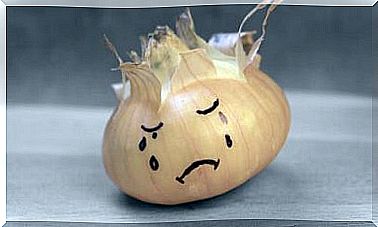Is There A Maternal Instinct?

It is very common to hear in colloquial conversations how men and women speak of the maternal instinct. Many people say that there is an innate impulse in women that generates the desire to have children. Since we played with dolls when we were little, we were called by the familiar instinct. And as we approach our thirties, society takes it for granted that this natural longing already lives in all of us.
Due to this shared social conception, many young women (and not so young) experience enormous social pressure to become mothers. And many others live stuck in frustration and guilt because that supposed natural instinct does not appear in their lives. But what is true in all this?
Maternal instinct
An instinct is defined as a natural, innate and unconscious impulse that is transmitted genetically and causes a certain response. As examples we find the feeding instinct that invariably leads us to look for food and water when we feel hungry and thirsty. Or, the instinct of the step, whereby a newborn baby placed in an upright position and in contact with the ground will begin to move his legs as if wanting to walk.
Can we affirm that the desire to be a mother is equally innate, universal and encoded in our DNA? The answer is no. There is no evidence to support the existence of an instinctual drive to have children in all women. Moreover, there are many who truly do not want to have children, so this cannot constitute an instinct: instincts are not optional.
Maternal behaviors, which are those reactions mediated by the hormone oxytocin and aimed at guaranteeing the survival of the newborn, appear only when the baby has arrived in the world, not before. Therefore, instinct is more related to taking care of the new one than to an innate desire to create it.

Motherhood is cultural
Having established that there is no universal tendency engraved in our genetics that drives us to become mothers, one wonders where the idea of this widespread maternal instinct comes from. Well, the answer is found in social and cultural constructions.
The concept of family as the center of society and of motherhood as the culmination of a woman’s life is cultural. Unfailingly, we are all influenced by collective beliefs and impositions. When living in society we grow up surrounded by a series of ideas and concepts regarding what is normal, what is desirable, where we should direct our life.
From birth, women are encouraged to develop their caring, comforting, and protective skills. Typically “feminine” behaviors are reinforced. Girls are taught to be helpful, protective, motherly. Little by little, the idea is transmitted to them that this is the role they have to play and that it is the care of others, especially their children, which will give meaning to their existence.
To check this trend, just look at the toy catalogs that have been aimed at children for years. The female sector is full of dolls and babies to symbolically care for, lull and feed. Although this phenomenon is fortunately changing and more and more people opt for a free and equal education, the effects have permeated previous generations.

Being a mother is a free decision
In such a conditioned society, those women who do not wish to exercise motherhood encounter innumerable obstacles. They are branded as selfish, unconscious, and assured that they will regret it if they decide not to have children. However, it is necessary to break with old and inherited cognitive patterns and broaden our sights.
Each human being must be free to choose his or her path and motherhood is only a personal choice. No woman should feel obliged to be a mother, just as no woman should be judged for deciding to live her motherhood fully. Finally, the really important thing is to be aware of our desires and aspirations, to be in touch with our interior and to be consistent with our desires.
That social pressure does not lead us to feel guilt, frustration or obligation. Deciding not to be a mother when you don’t want to be, is an act as legitimate as it is mature. Each person has the right to find their personal fulfillment in different ways.









